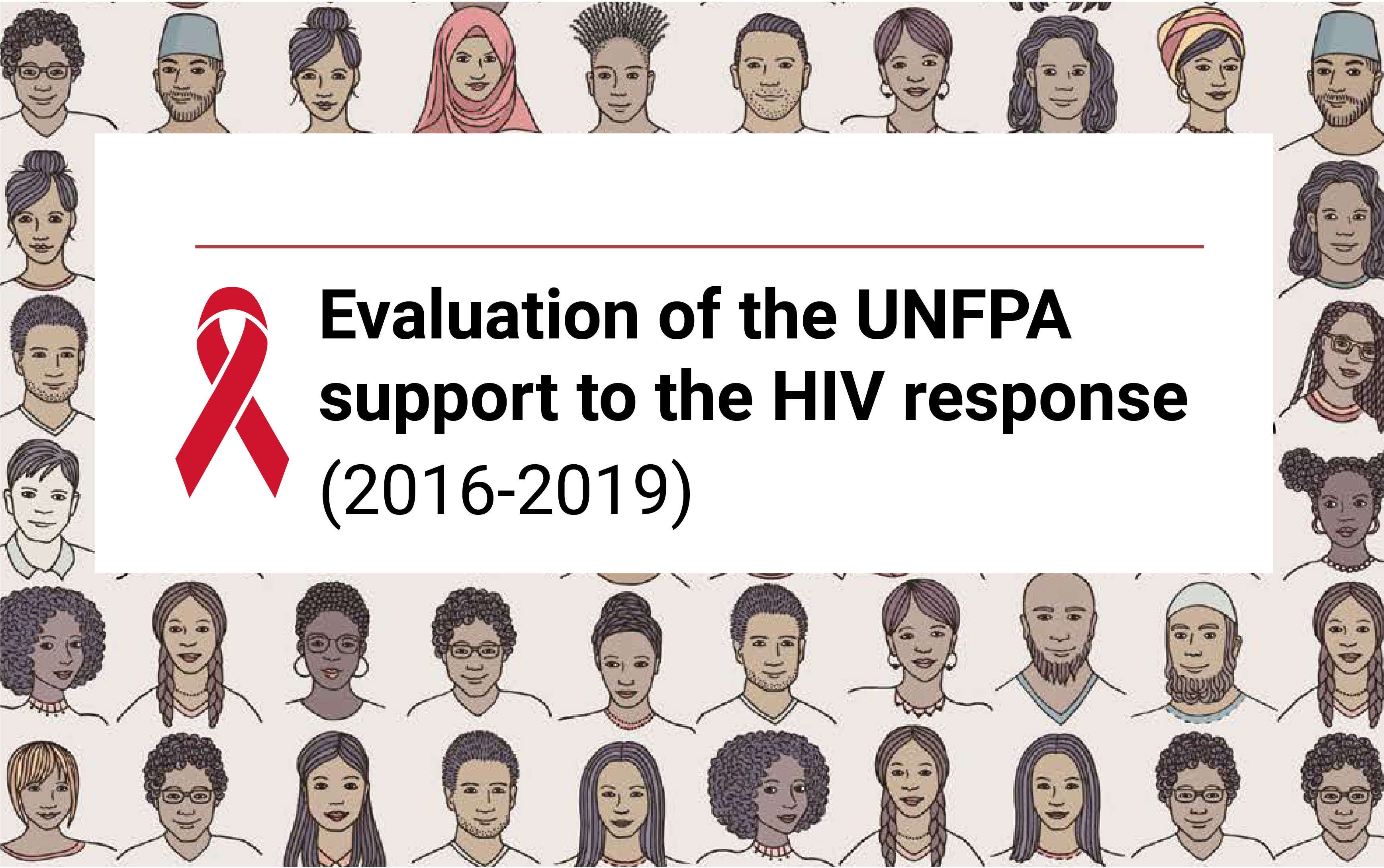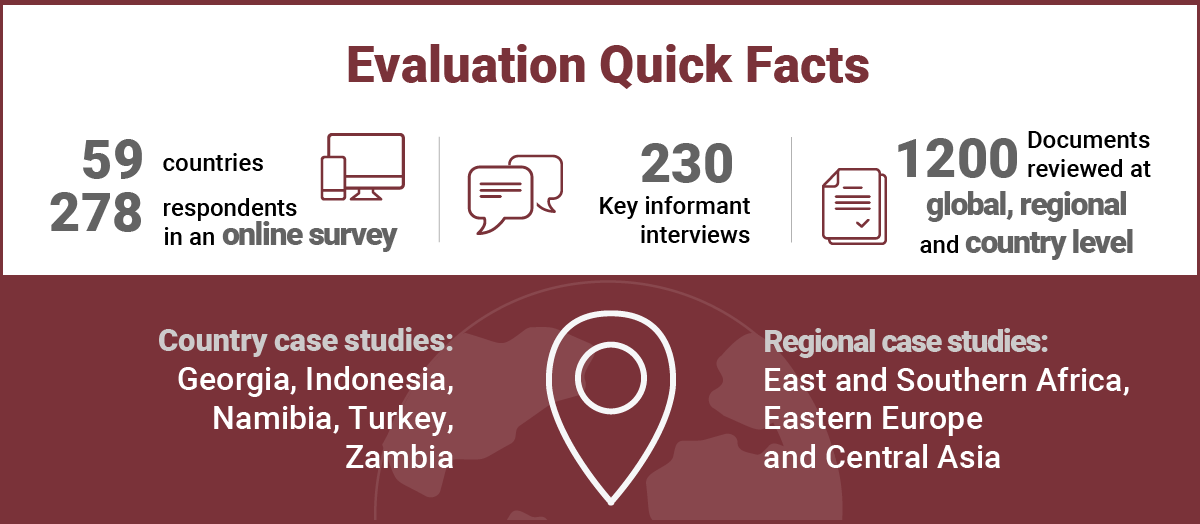
Evaluation of the UNFPA support to the HIV response (2016-2019)
Resource date: 24 Jul 2020

Resource date: 24 Jul 2020
Watch key highlights of the evaluation and learn how UNFPA is using the evaluation recommendations to strengthen its HIV response
While major successes have been recorded and valuable lessons have been learned in the global response to HIV in the past two decades, much still remains to be done. Today about 1.7 million people acquire HIV every year. Adolescents and youth are also particularly vulnerable to HIV infection, especially adolescent girls and young women. The HIV epidemic continues to evolve, as does the social, political, scientific and financial context of the response.
UNFPA is at the forefront of global HIV response, working at all levels, focusing on integrated response to sexual and reproductive health and rights (SRHR), HIV, and sexual and gender-based violence, intensifying HIV prevention, supplying male and female condoms and lubricants, and tackling gender inequalities. The purpose of the evaluation is to assess the performance of UNFPA in integrating its approach to supporting the response to HIV within the broader context of SRHR, population dynamics, gender equality and human rights.

The evaluation finds that UNFPA has successfully leveraged the UNAIDS Division of Labour to guide its efforts. UNFPA has made important contributions to realizing the rights and meeting the needs of the most vulnerable, including adolescent girls, young women and key populations. Yet, the absence (at corporate level) of a clear strategy conveying a strong priority for realizing the rights of, in particular, key populations, has inhibited UNFPA from fully deploying its capacities to support the HIV response.
The evaluation recommends that UNFPA build on the results it has achieved and develops a strategy for its support to the HIV response. This strategy should detail the role of UNFPA at global, regional and national levels and, aligning its responsibilities as a UNAIDS Cosponsor with UNFPA core mandate areas, should seek synergies between the HIV programming and other internal strategies and programmes in support of the transformative results.
For further information on the evaluation, please write to Marco Segone, segone@unfpa.org and Louis Charpentier, charpentier@unfpa.org.
Evaluation Report Volume 2 (Annexes)